#queer austen
Explore tagged Tumblr posts
Text
Henry Tilney and Catherine Morland are a gothic romance reading, Newfoundland puppy raising, gender non-conforming, queer couple.
They are very happy.
(They have a lot of fun fooling the straights.)

#northanger abbey#jane austen#catherine morland#henry tilney#queer austen#queer couples#it’s right there in the text
62 notes
·
View notes
Text
Cover Reveal for A Truth Universally Acknowledged: Queer Fanworks Inspired by Jane Austen’s “Pride and Prejudice”

HAPPY COVER REVEAL DAY! Duck Prints Press’s next anthology, A Truth Universally Acknowledged: Queer Fanworks Inspired by Jane Austen’s Pride and Prejudice, will be crowdfunding starting November 20th, 2024. We’ve been hard at work on this collection for a loooong time and we are thrilled to finally be making it available for y’all. The gorgeous cover art, made by artist Aceriee, was inspired by the classic 1898 “peacock edition of Pride and Prejudice – but of course, we made it queerer. The spectacular full cover is wrap around.
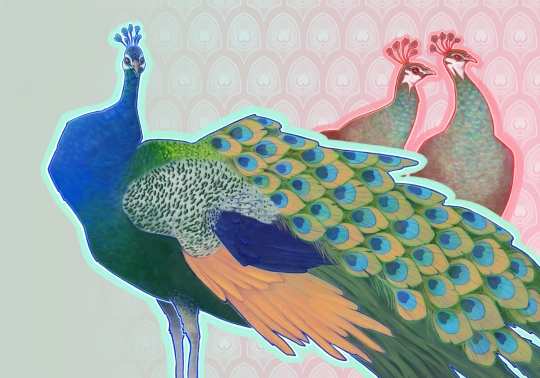
(spoilers: this art will be offered a postcard as one of the Kickstarter campaign backer rewards!)
This awesome book features 21 stories each up to 5,000 words long and 20 full-page color artworks. Our campaign features six merch items, too, with peacocks standing proud on much of the art.
Want to be sure you don’t miss the campaign? Follow our Kickstarter pre-launch page now!
Become a Patreon backer to get behind-the-scenes access to sneak peeks and more!
#duck prints press#jane austen#pride and prejudice#queer fanworks#queer anthology#queer pride and prejudice#peacocks#queer art#aceriee#queer fanworks inspired by#a truth universally acknowledged#kickstarter
574 notes
·
View notes
Text








Selected Works from Alice Austen
Alice Austen is known for her photographs of everyday people in New York, which managed to capture New York's immigrant population throughout their days, Victorian women's social activities, and New York's own rapidly changing culture. Her work captured not the posed and proper, but the very real lives of people on New York's streets. We want to especially highlight her work showcasing queer people of the era. You can see some of those works, like "The Darned Club" as part of the Collection of Staten Island Historic Society.
Coming to her work as a lesbian absolutely affected how she approached her work, her subject, and the outcome of her photos. She and Gertrude Tate met and began their 53 year long relationship at the turn of the 20th century, though they were only able to live together for about 30 of those years and were sadly buried apart, despite their wishes. Fortunately, in the past decade or so, there has been some push to see the pair reunited, though no plans have been made.
You can find these works and more in our gallery!
333 notes
·
View notes
Text

october 1984 issue cover of 'womanspace news' featuring a photograph of alice austen, a female photographer who documented life as a lesbian woman in the 1890s.
131 notes
·
View notes
Text
So how is God’s image manifested in our bodies? In the same way it’s manifested in the rest of our being. The image of God was not given to humankind in bits and pieces, with some living in your left arm and another bit in your soul and another bit in your abilities to argue and reason. It is a gift that resonates throughout all that we are, like the deep tones of a bell rung far away. It awakens us and moves us forward toward God and toward each other.
Transforming: The Bible & the Lives of Transgender Christians, Austen Hartke
82 notes
·
View notes
Text
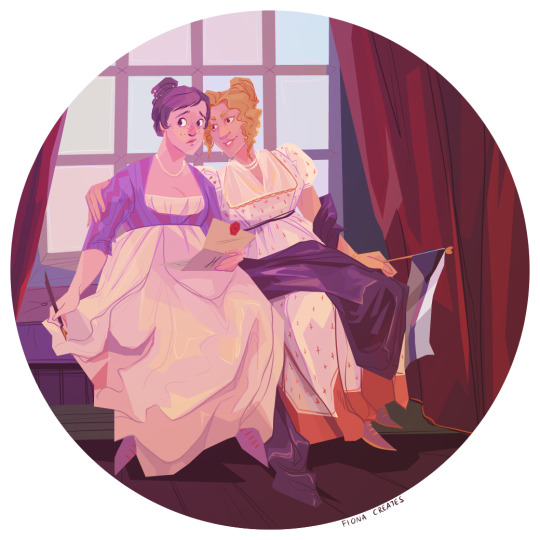
Harriet and Emma
Reading queer things into Jane Austen. Emma the demisexual.
The aces, they up in everyone else's love life and totally uninterested in their own.
Painting reference by Angelica Kaufmann (1741–1807) - The Artist in the Character of Design Listening to the Inspiration of Poetry
#Jane Austen#Emma#Emma Woodhouse#demisexual#asexual#Emma declares she will never marry#until the end of the book when the guy she's been bffs with forever#suddenly seems like mr right#no one is more invested in other people's love lives than the aces#disclaimer#i do not think jane austen's works are purposefully queer as we know it#but i sure love underlining things and saying “gay” a lot
293 notes
·
View notes
Note
so, this is a very specific question but I LOVE your blog, your takes are so well articulated and you are so knowledgeable on Austen that I wanted to hear your opinion on this.
so everyone knows that emma is the easiest austen novel to read as queer right? if you had to direct/write a modern gay emma adaptation which route would you take? lesbian emma paired w harriet (seems to be the most common take) with jane (less common but her descriptions of her were something else) or genderbent knightley? again this is v specific but I've been thinking of writing an au like that since forever and your input would be amazing:)
Hello and thank you! I actually have a very specific answer to this one because I have an unfinished fan fiction about a queer version of Emma. It's Regency so I won't modernize it. So here is what I would do:
Jane Fairfax is bisexual. Despite not liking Emma very much, they were together as teenagers before Jane stopped visiting home for two years. Jane then falls for Frank, which Emma thinks is fake because...
Emma is a lesbian.
Harriet is straight and boy-crazy. Emma and her don't have any relationship beyond being friends. (I don't like the power/intelligence imbalance here, Jane feels more equal to Emma)
Mr. Knightley is asexual and sex-repulsed. He has never married because he knows it would cause social harm for his wife to never have children because of him. He loves Emma, but didn't think their marriage was possible.
The story basically follows canon but with very different motives. Emma is trying to break up Jane & Frank out of the misguided idea that Jane can't love Frank, so she's saving him from a mercenary marriage. Jane loves Emma, but cannot bring herself to live as her "companion" with no equality of fortune. After Jane and Frank's engagement is announced and Emma is heartbroken, Mr. Knightley offers as companionship marriage to Emma, who has realized that he is the real person she can't survive without. They live together as best friends. Mr. Knightley and Emma adopt one of their nephews as their heir.
30 years later, the widowed Jane Churchill moves back to Highbury and either Mr. Knightley has also passed on or he's okay with his wife having a lover.
55 notes
·
View notes
Text

Happy ace awareness week!
Why are we posting about Jane Austen during ace awareness week? Well, although she was a romance writer, Jane herself never married, and indeed turned down several proposals throughout her life. This has led some people to speculate that she might have been interested in women, rather than men with several sensationalist headlines out there like Jane Austen ‘frequently slept with a female friend’ and may have had lesbian sex.
Jane definitely could have been interested in and had relationships with women, but it's also possible that she was aromantic and/or asexual. While we'll never know the details of her sexuality for sure, ace awareness week is an important reminder for us to keep our minds open to the possibilities of ace and aro orientations when we talk about the potential of queerness in history.
If you're interested in learning more about how Jane's sexuality, and how it's been discussed over the years, check out our podcast!
[Image source]
#ace awareness week#ace history#asexual history#aro history#aromantic history#queer history#lgbt#lgbtq#jane austen#queer#wlw
64 notes
·
View notes
Text
LET'S TALK ABOUT THE LOKI SERIES' ROMANTIC TROPES AND JANE AUSTEN
I am going to compare the relationships and romantic undertones of Loki, Sylvie, and Mobius with my all-time favorite Jane Austen adaptation because the character archetypes and plot-points are strikingly similar with Ang Lee and Emma Thompson's 1995 Sense and Sensibility.
This sounds cracked, but stay with me. Tropes are tropes for a reason. They are often repeated in writing subconsciously because they are very old and near-universal story arcs regardless of the literary genre we are discussing.
Please note that this is not a 1-to-1 comparison. This is an analysis of basic archetypes, tropes, and plot-points: the barebones skeleton of story structure. With that said, let's dig in:
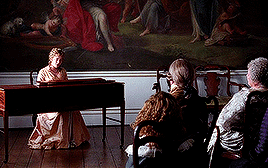
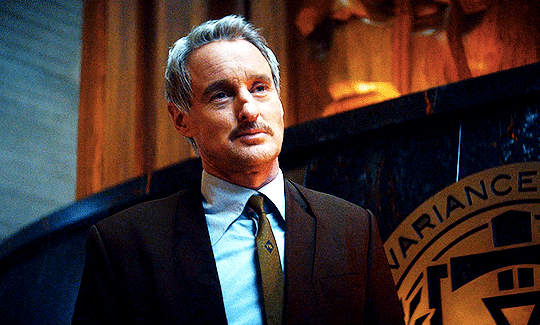
Loki = Kate Winslet's Marianne Dashwood
Sylvie = Greg Wise's John Willoughby
Mobius = Alan Rickman's Colonel Brandon
For those of you who have not seen (or read) Sense & Sensibility, the story is about a family of women who are rendered near-destitute when the patriarch passes away and, due to English law at the time, all the family finances fall to the only son. The only hope for the women to escape the edges of poverty is to marry into wealth.
The Loki series’ main storyline is a far cry from that of Sense & Sensibility. It is first and foremost a sci-fi action-adventure, but don’t let that genre fool you. Well-written stories are always character-driven. The setting serves to establish the rules of the world and the tangible challenges the characters must confront to achieve their goal. The end goal for Loki is his ascension to the God of Stories (and time). Therefore, his character arc must follow a trajectory that prepares him for that ascension.

Love, above all else, is essential for Loki’s journey. In order to understand and be capable of love, Loki must experience love in all its forms including but not limited to romantic. I've seen a lot of social media posters mocking shippers with comments saying, "the story is not about romance." I wholeheartedly disagree. While romance is not the main concern of the series, romance does serve Loki's character development.
It is critical that we remember romance does not require physical contact or even blatant declarations of love. If that were true, unrequited love would not be thought of as romantic, which we know is not the case. Further, it is possible for physical intimacy to exist without any romance at all. One does not require the other.
While dismantling HWR’s old regime is the Loki series’ “Plot A” thread, Loki’s emotional experience serves as the series’ “Plot B” thread. Love and romance exist in Plot B.
THE CHARACTERS & THEIR ARCHETYPES
LOKI & MARIANNE
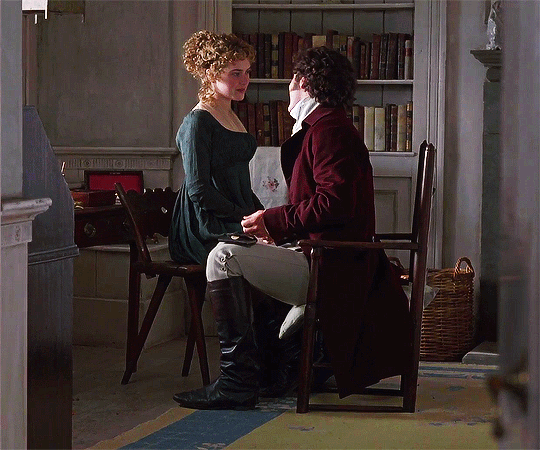
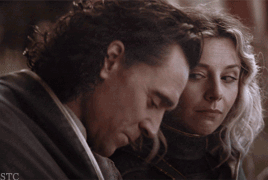
Within Sense & Sensibility’s plot, one of the main heroines, Marianne, has the archetype of the mercurial, passionate, and freewheeling spirit. She is rebellious at heart, chaffing at society’s rigid expectations of emotional repression and polite rather than fiery courtship. Much like Loki with Sylvie, Marianne is drawn to John Willoughby because his temperament, values, interests, and talents very closely mirror her own.
Like Loki, Marianne is emotional. Her emotions drive many of her decisions, some of which are rash and socially unacceptable for her era.
Like Loki, Marianne detests social norms. Refusing to contain her nature for anyone, she is unafraid of the stares and judgment of others.
Like Loki, Marianne is poetic, a lover of words and metaphor.
Like Loki, Marianne is a hedonist. She will follow where her heart takes her regardless of the consequences. Just as Loki runs after Sylvie through the portal door, Marianne chases after Willoughby.
SYLVIE & WILLOUGHBY
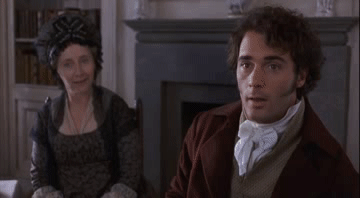
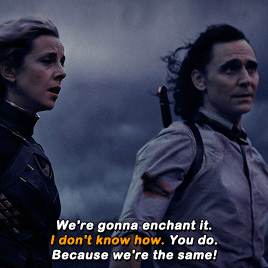
Willoughby fulfills the archetype of the ideal lover at first sight. He is young, handsome, strong, deeply romantic, and a lover of poetry, pleasure, and unfettered emotion. I will not go into the deeper details of his character and plot here as I don't find them relevant for the purposes of this analysis. The key point to remember is that Willoughby is meant to be Marianne's perfect match by virtue of similarity.
Like Sylvie, Willoughby is emotional and consequently chaotic in nature. At his worst, Willoughby is unafraid of hurting others in the pursuit of his desires.
Like Sylvie, Willoughby chooses absolute freedom over the genuine love and care he has for Marianne (Loki).
Like Sylvie, Willoughby views institutions with social authority with contempt.
Like Sylvie, Willoughby judges character based on association with institutions rather than the individuals themselves. He holds repugnance for Brandon’s (Mobius’s) association with the military (the TVA). Fair enough, both the TVA and the military (especially the British military) are institutions that have committed horrific global atrocities.
Like Sylvie, Willoughby is unable to separate the institution from the individual people living and working within it, who are capable of goodness.
MOBIUS & COLONEL BRANDON
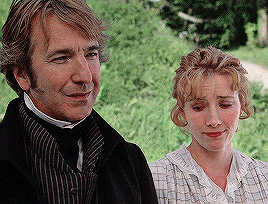

Colonel Brandon, a decorated military officer, fulfills the trope of the “dark horse” in love. He is Willoughby’s opposite: older, "less physically attractive", reserved, practical, and orderly. The main character (Loki/Marianne) appreciates his friendship yet does not feel any romantic affection for him (Mobius/Brandon) until the primary love interest (Sylvie/Willoughby) abandons the relationship for absolute freedom.
Like Mobius, Brandon is drawn to intelligent, artistic, footloose nonconformists.
Like Mobius, Brandon accepts and loves Marianne exactly as she is, including her faults. He does not want her to change against her will and gently reprimands her older sister, Elinor, at such a suggestion.
Like Mobius, Brandon serves an institution with significant influence on the lives of others.
Like Mobius, Brandon accepts that his love is not returned yet continues to express his love through his support of Marianne’s (Loki's) wishes, including his romantic rival Willoughby (Sylvie).
Like Mobius, Brandon is seen as a dear friend rather than a potential romantic partner in the first 2/3rds of the story.
Like Mobius, Brandon’s personal desires are secondary to Marianne’s (Loki’s) happiness.
THE ROMANTIC PLOT
It is understood by the audience that love is not only a feeling; it is also an action that requires incredible responsibility. In that responsibility, both lovers must choose to take into consideration the feelings, wants, and needs of the other.
The trope of a main character meeting their perfect match and falling quickly in love informs the audience that conflict must lie ahead, and that the third party of the love triangle will be tested for their worthiness as a romantic partner.
Loki & Sylvie and Marianne & Willoughby possess a fast, passionate, and explosive love.
Loki & Mobius and Marianne & Brandon posses a slow, steady, and gently burning love.
These two relationships, which are BOTH valid AND romantic, are set against one another to contrast each suitor's strengths and weaknesses, as well as to shed light on which suitor best meets the feelings, needs, and wants of the main character.


The main character's (Loki/Marianne) love interests inevitably collide in a tense confrontation. Being the Georgian Era, Brandon and Willoughby do not discuss their dislike for one another directly but with Marianne's older sister, Elinor.
Sylvie, on other hand, is not afraid to tear into Mobius, saying exactly what she thinks of him. Both directors of photography frame their shots in a near-identical fashion, demonstrating who are at odds and the individual (present or not) who is between them.
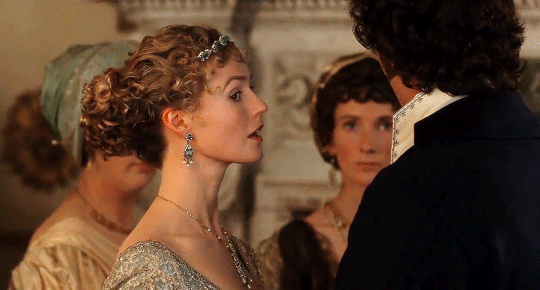
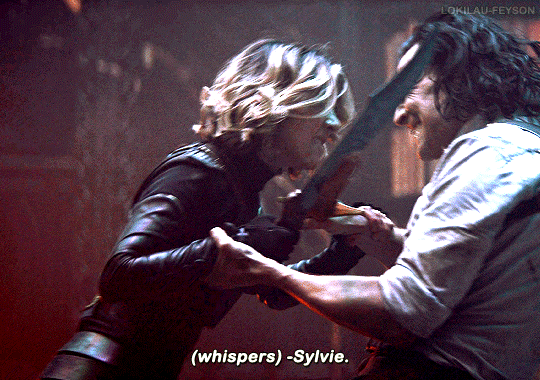
Whether in the realm of fiction or reality, the act of love inherently requires some degree of self-sacrifice.
While Sylvie performs self-sacrifice by pruning herself in hopes of finding and rescuing Loki from the Void, that self-sacrifice does not extend to her personal values and beliefs with respect to free will. She therefore fights Loki, ultimately kissing him farewell before kicking him through a time door to get what she wants.
Likewise, Willoughby, cut-off from his family's estate due to indiscretions he refuses own, prioritizes wealth over his relationship with Marianne in order to continue his lifestyle of luxury and absolute freedom. Willoughby therefore marries the exceptionally wealthy Miss Grey to achieve this end, abandoning Marianne and breaking her heart in the process.
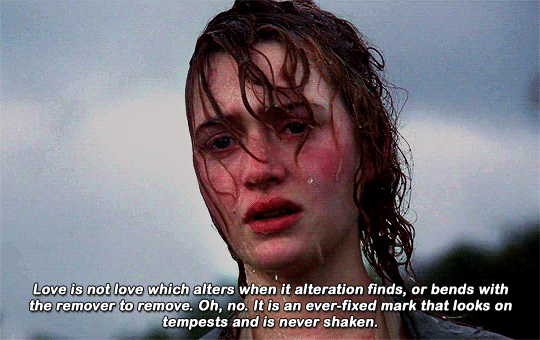

At the midpoint of each storyline (where the narrative turns), both Loki and Marianne have lost the person they felt most strongly about because they were not that's person's priority.
Marianne's quote in the above gif is significant. It is a poem she and Willoughby recited together when they first met. She recites it again, alone, as she looks upon the estate Willoughby has married into in the rain. The poem is as follows:
"Love is not love which alters when it alteration finds, or bends with the remover to remove. Oh, no. It is an ever-fixed mark that looks upon tempests and is never shaken."
This poem defines love as not fickle but persistent in the face of challenges and "never shaken".
THE DARK HORSE IN LOVE
Brandon, who falls for Marianne first, establishes himself as not only a friend of Marianne's but her whole family's. All of his actions throughout the film are performed out of love for Marianne, but these actions are not read as romantic by Marianne because there is no fast-burning fire and (seemingly) little commonality between them.

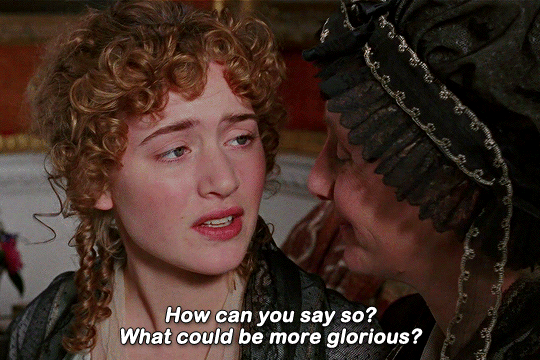
Marianne's mother cautions her, pointing out that the romances she cites all meet pitiful ends. In return, Marianne describes such love as not pitiful but "glorious."
Brandon and Mobius express their love for Marianne and Loki through practical means. Their actions are predominantly viewed as marks of friendship rather than marks of romantic love. It should be noted that in both cases, no verbal declaration of love, nor any physical declaration of love, such as a kiss, is ever made by either Mobius or Brandon on screen. Brandon's unrequited love, however, is readily apparent to everyone (the characters and the audience) due his presentation of the opposite gender.
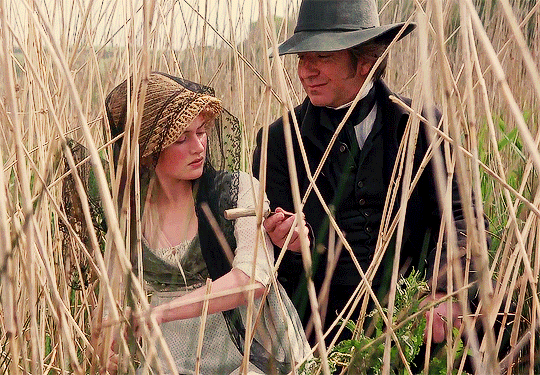

Brandon, upon seeing Marianne struggle cutting reeds for weaving, offers her his pocketknife. Mobius, knowing that confrontation with Sylvie at Roxxcart will be dangerous, offers Loki his daggers for protection.
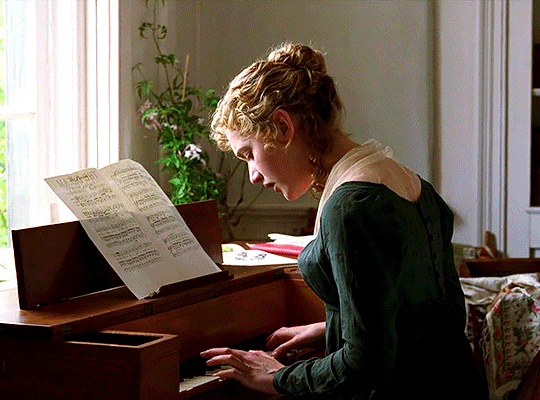

Brandon, recognizing Marianne’s need for artistic pursuits, gifts her a piano. Mobius, recognizing Loki’s need for validation, provides him with words of affirmation, encouraging Loki’s talents in magic and cunning.
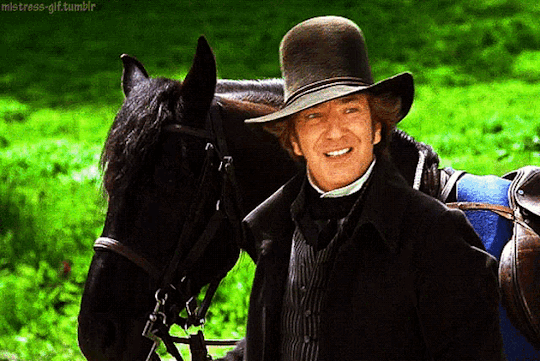

Brandon, acknowledging Marianne’s love for Willoughby, invites Willoughby to a picnic at his estate despite his distaste for him. Mobius, acknowledging Loki’s love for Sylvie, frees Loki and is pruned despite his jealousy of her.
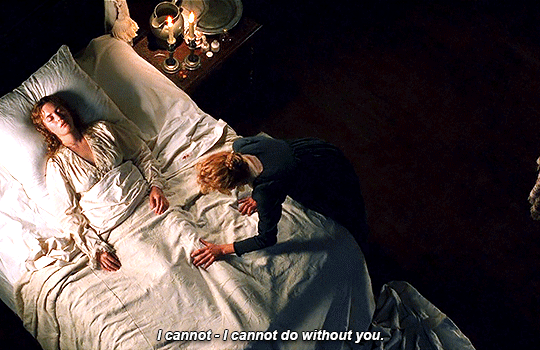

Marianne, out in the rain and in distress over her loss of Willoughby, succumbs to a deadly fever. Loki, kicked through a time door and in distress over his loss of Sylvie, succumbs to time-slipping.
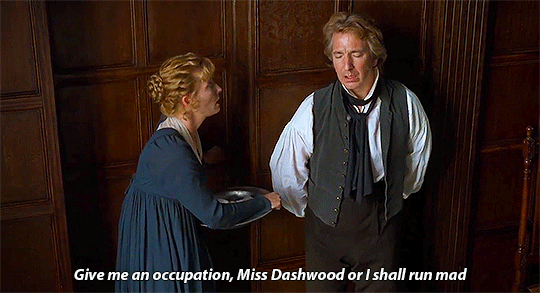

Brandon and Mobius actively make themselves available in response to their loved one's individual break-ups with ZERO expectation of having their love returned.
Brandon, concerned that Marianne's illness may kill her, rides nonstop for hours to retrieve her mother during a storm. Mobius, concerned for Loki's wellbeing, risks his life on the loom's gangway, risking exposure to temporal radiation and death.
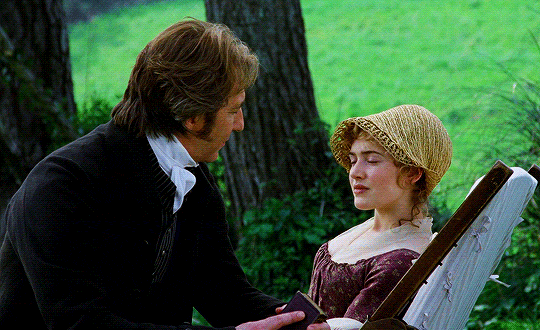
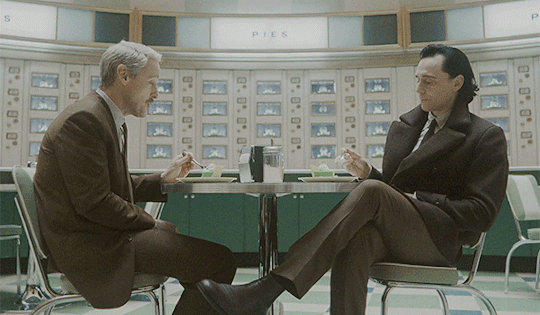
In the end, both Brandon and Mobius are the triumphant winners of Marianne's and Loki's hearts.
Indeed, Brandon reads poetry to Marianne, and when he announces he must "away", Marianne worriedly asks "where?", demonstrating her desire for him to stay. Brandon teases her, fulfilling Marianne's need for romance and excitement by saying, "it is a secret."
Mobius, meanwhile, begins to open himself up to worldly pleasures, allowing himself to drop the strict, no-nonsense behavior he exhibited in S1. Loki, in turn, begins to provide him with the type of emotional support Mobius has consistently given him since the beginning (yes, he has a jealous meltdown, but he recovers relatively quickly).
The outcome of their successes, however, diverge due to their gender presentation.
Whereas Brandon happily marries Marianne ...
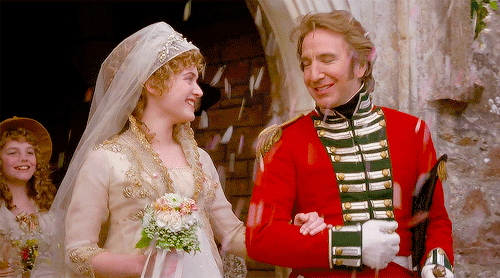
... Loki returns Mobius's selfless love with a sacrifice of his own, and they are separated.
#lokius#loki#mobius#loki series#loki season 2#lgbt representation#lgbtqia#queer representation#lgbtqia representation#loki meta#loki analysis#my meta#my analysis#jane austen#sense and sensibility
204 notes
·
View notes
Text
i love pride and prejudice. like most good art, it’s an autistic woman projecting onto all of her autistic women characters she writes about to cope with the fact that she can’t do much but think. darcy is included as one of the women.
#there’s a lot of philosophy to had in disability and in femininity and in queerness and in being any sort of categorical nd#jane austen#pride and prejudice#🩷
256 notes
·
View notes
Text


Pride & Prejudice | 2005 Napola - Elite für den Führer | 2004
#pride and prejudice#before the fall#napola 2004#perioddramaedit#filmedit#pride and prejudice 2005#max riemelt#matthew macfadyen#keira knightley#tom schilling#jane austen#queer#lgbt#film#movie#homoeroticism#dennis gansel#joe wright#elizabeth bennet#fitzwilliam darcy#mr darcy#elizabeth x darcy#period drama
126 notes
·
View notes
Text
Calling All Artists!
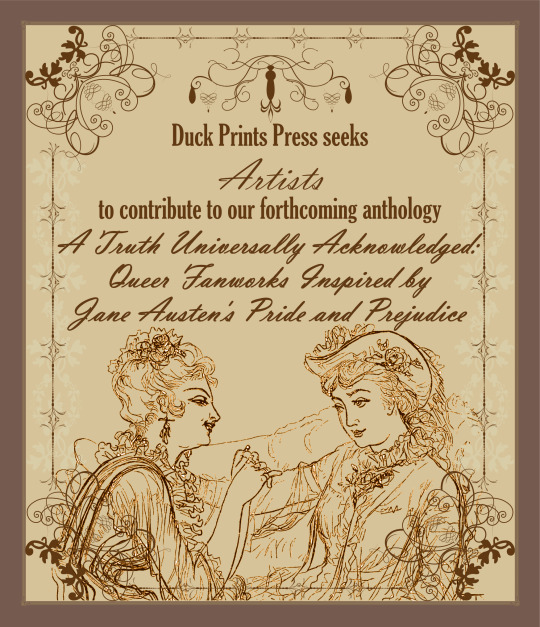
In celebration of January 1st, 2024, and Public Domain Day, Duck Prints Press is thrilled to announce that we are doing open recruitment for artists to contribute to our next fanfiction and fanart anthology A Truth Universally Acknowledged: Queer Fanworks Inspired by Jane Austen’s “Pride and Prejudice”!
Are you an Austenite? Do you love Regency romance but lament how, well, straight most of it is? Do you wish Mary Bennett found a partner? Are you positive Charlotte Lucas deserved better? Do you pity Miss de Bourgh? Do you dream of Darcy and Bingley OT3s? Well you are NOT ALONE! We at Duck Prints Press are right there with you, and we’re here to say: this is your moment to shine! We want your wlw pairings, your new happy endings, your P&P ot3s and ot4s, your “but what if they’re trans,” your queer art and fanart inspired by this beloved story! This story has such a lovely main and supporting cast, the possibilities for taking Pride and Prejudice and MAKING IT QUEER are endless!
This is the third in our Queer Fanworks Inspired By… series, publishing legal fanfic and fanart inspired by popular works in the public domain. It builds on the success of our first two, And Seek (Not) to Alter Me (inspired by Much Ado About Nothing) and Aim For The Heart (inspired by The Three Musketeers). This is a paid arting opportunity; artists will be asked to complete one full-page (A4/210 mm x 297 mm), full-color piece, and we may have space for some artists to complete more than one page and/or short comics. Base pay is $50 per page, with the potential for raises up to $400 per page depending on our success during the eventual crowdfunding campaign.
Want to Learn More? OF COURSE YOU DO!
A Truth Universally Acknowledged Rules and Guidelines
A Truth Universally Acknowledged FAQ
A Truth Universally Acknowledged Schedule
Sample artist contract
Ready to apply? YAY! Follow this link to the sign up form! Applications close at midnight, January 15, 2024!
Interested in writing for this anthology? Unfortunately, author applications are only open to writers already involved with Duck Prints Press. Sorry! If you’re on our private Discord server, be on the lookout for the announcement with sign-up forms there.
Interested in buying this anthology once it’s available? Make sure you follow us on social media and/or sign up for newsletter so you hear the latest!
Eager to see how this project develops, read sneak peeks and see art previews, and more? Back us on Patreon! Patrons also selected this anthology theme – you can have a say in our future anthology themes, too, just by backing us at any level!
Please signal boost to help us spread the word!!
#jane austen#pride and prejudice#queer fiction#duck prints press#queer fanworks#queer fanworks inspired by#queer art#queer jane austen#queer pride and prejudice#elizabeth bennett#darcy#bingley#mr. collins#idk how extensively i should tag this for austen stuff#oops#austenite#austen fanfiction#austen fanworks#austen fanart#pride and prejudice fanart
165 notes
·
View notes
Text
Jane Austen was so insane for writing Emma I’m losing my mind
Like you have the mean bossy femme lesbian in her late 20’s, living off her trust fund and becoming hyper-obsessed with a local pretty peasant girl Jennifer’s Body style. People call her perfect, and she knows they’re right
(They’re wrong. Her childhood best friend - her metaphoric conscious - reminds her every day.)
She’s the protagonist of this book but the antagonist of every other: she’s Caroline Bingley, Blanche Ingram, Cordelia Chase, Regina George, Heather Chandler. She’s the queen of this school, and popularity is a hell of a drug.
(Popularity is the only power she has. There’s something itching at the back of her brain: She doesn’t want to be this. She doesn’t want to do this. Why is she trying to impress all these mean people.)
She can do no wrong. She mocks the annoying weird girl and everybody laughs and the weird girl finally shuts up.
(He’s frowning at her in the background. She’s frowning at herself. She’s angry at both of them)
People think she’s charming and beautiful and so kind.
(They’re wrong.)
She keeps everybody at arm’s length, staying mean and fiercely independent.
(They can’t see her loneliness. Her failures. The way she watches her pretty new friend laughing joyfully and beautifully in the sun, and it just makes her feel sad.)
She plays Cupid because she sees people as her play things - love is just a game for her.
(She plays Cupid because she knows that everybody will leave her in the end, anyways. This just allows her to control it.)
Jane Austen famously called Emma “a heroine whom no one but myself will much like.”
(I like her too)
#emma#Jane Austen#I’M VERY NORMAL ABOUT EMMA#ultimate beloved queer coded mean girl#jane austen said ‘i want to take this mean girl and study her for science’ and that’s such a mood#uh this post got out of hand. i might just be gay for emma.#also yes Emma is actually 21 this is a vibes ONLY post
311 notes
·
View notes
Text
the mood for this scene.... is insane... literally THE most beautiful scene in a thai period lakorn i have ever witnessed. fearing for my life that i feel you linger in the air is deehuphouse's magnum opus because i don't see any of their future works living up to what ifylita brought to thai bl history
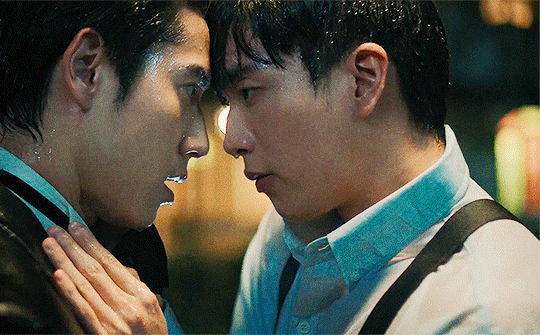
#i feel you linger in the air#claire opens her goddamn mouth#ifylita#it's so funny whenever y'all see me rambling on here it's either ranting abt thai bl conventions or random ifylita thoughts#my sincerest apologies#to those following me for anything else#the classiness and elegance of ifylita.... not a lakorn but not quite your typical bl series either... a queer period series#austen-coded thai bridgerton meets outlander we love thee
61 notes
·
View notes
Text



girlboss nation RISE
#lost 2004#lost abc#abc lost#lost tv show#kate austen#kate lost#lost fanart#fanart#traditional art#pen drawing#queer#queer artist#bisexual#my art#mine#sapphics for kate!!!#freckles
19 notes
·
View notes
Text

Not Sawyer keeping tabs on how many times his husband Jack comes back from the jungle with Ana Lucia <3
#their eyes are always on El Jacko#if only my babygirl knew that these people are completely in his thrall#my man sawyer is also wearing his bisexual flannel. i love him.ugh.i hate him#bisexual sawyer truther here#my babygirl jack shephard#james sawyer ford#jack shephard#kate austen#lost#lost season 2#lost abc#lost tv series#lost rewatch#abc lost#lost 2024#queering lost#queer lost
36 notes
·
View notes